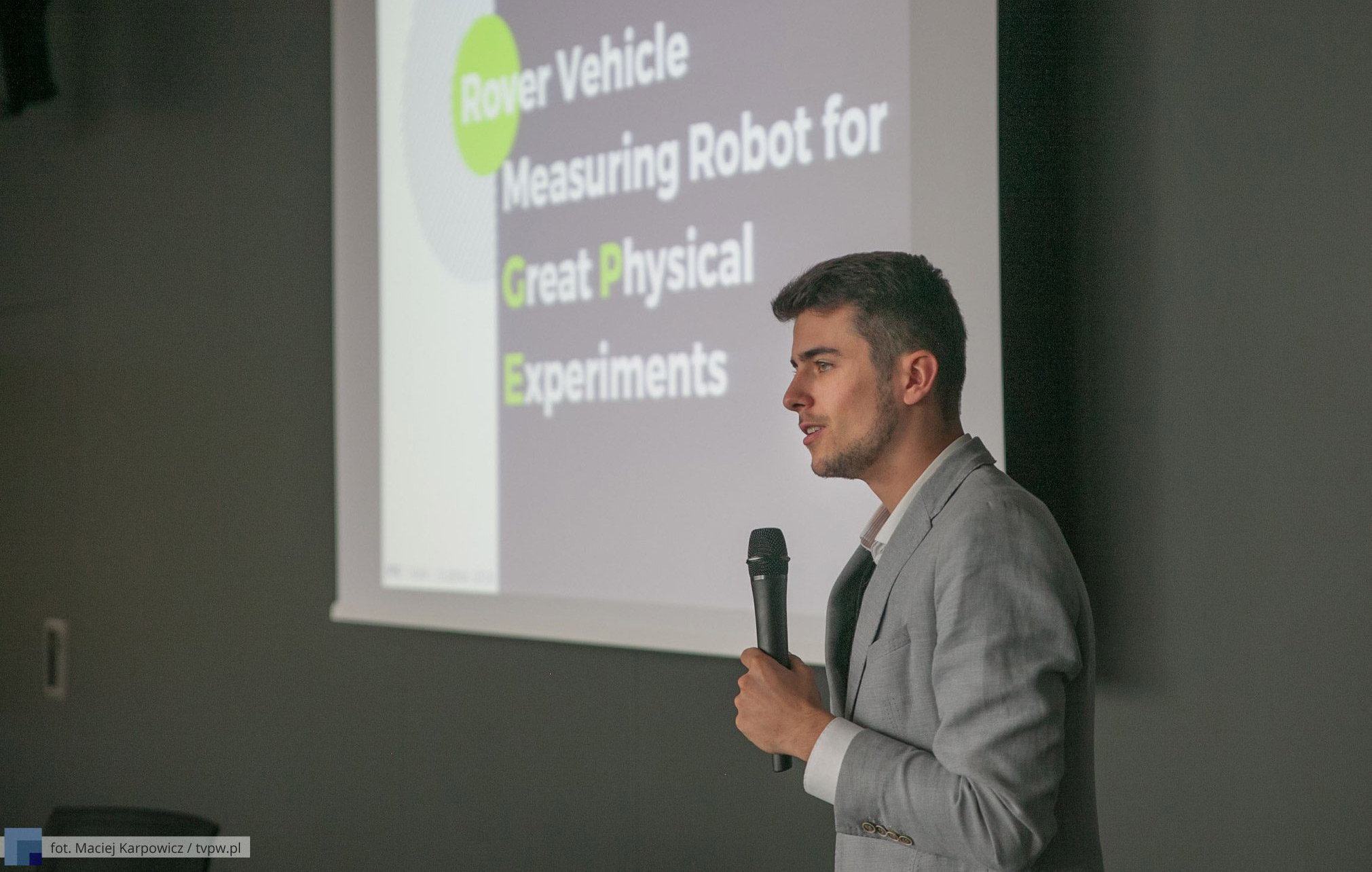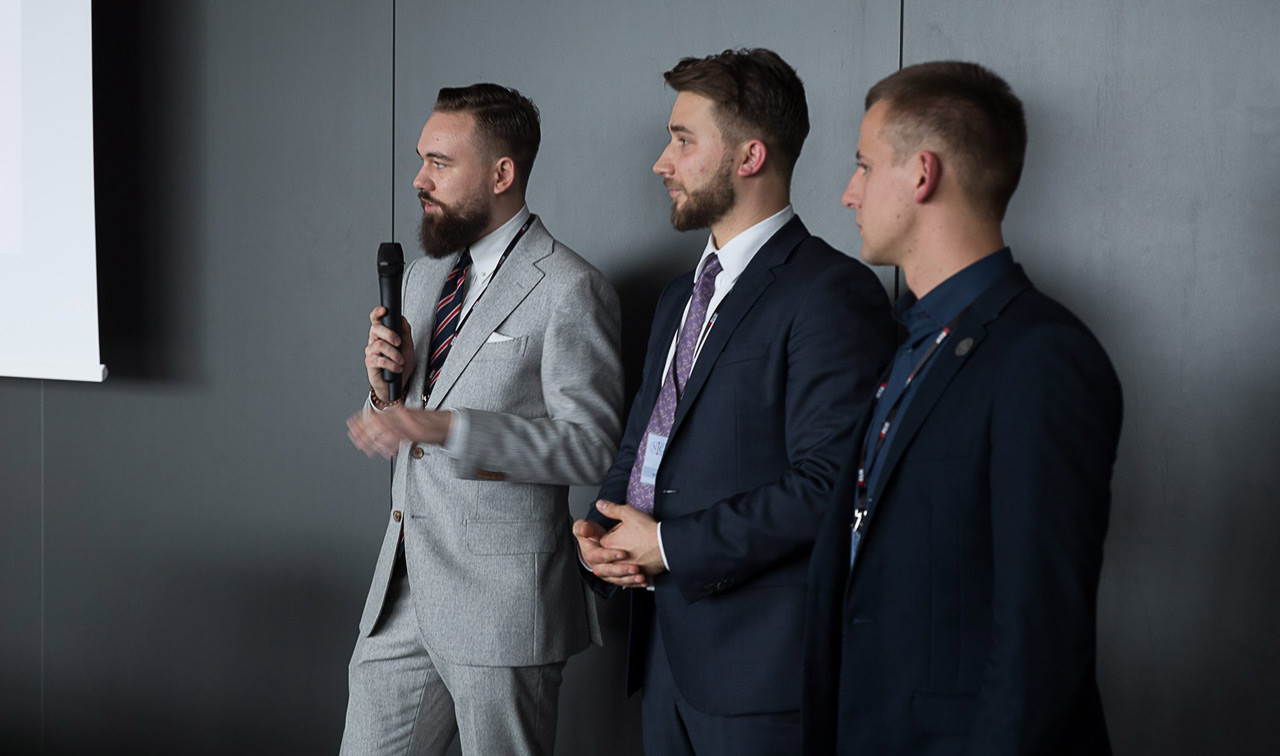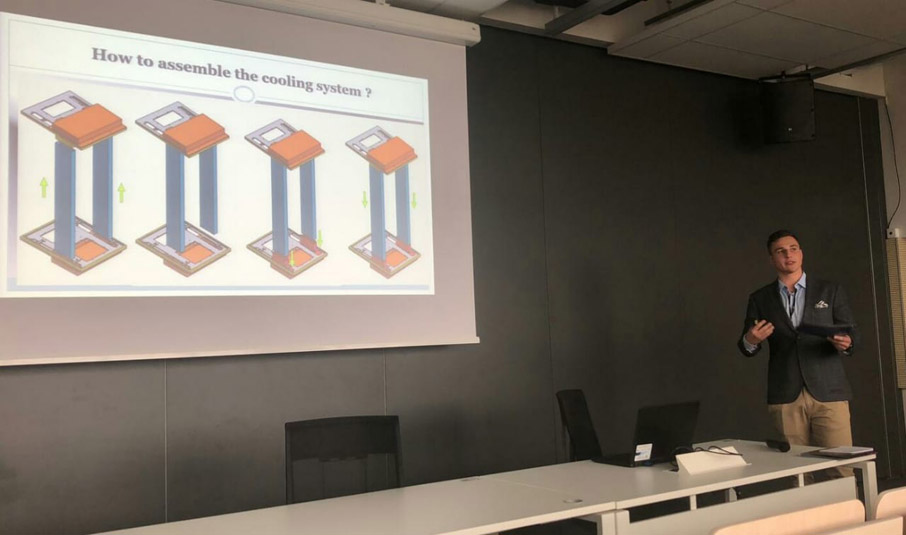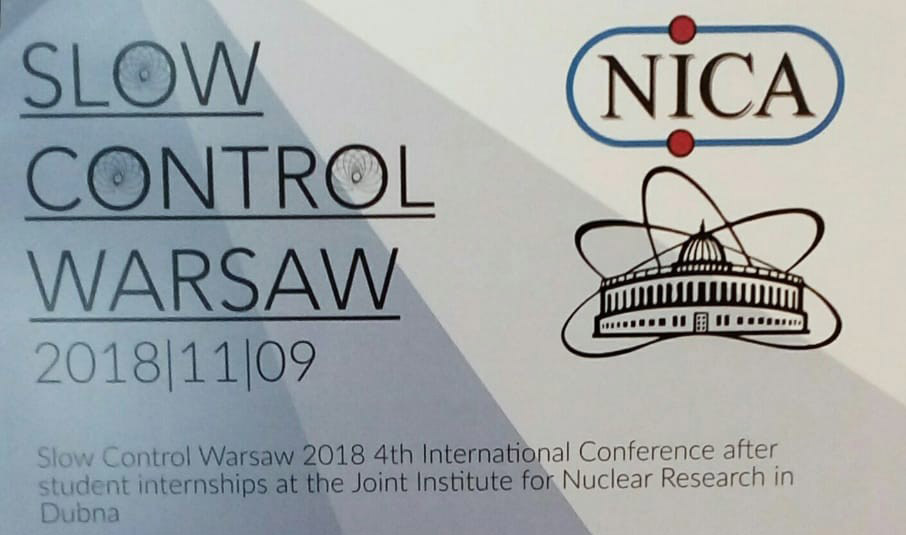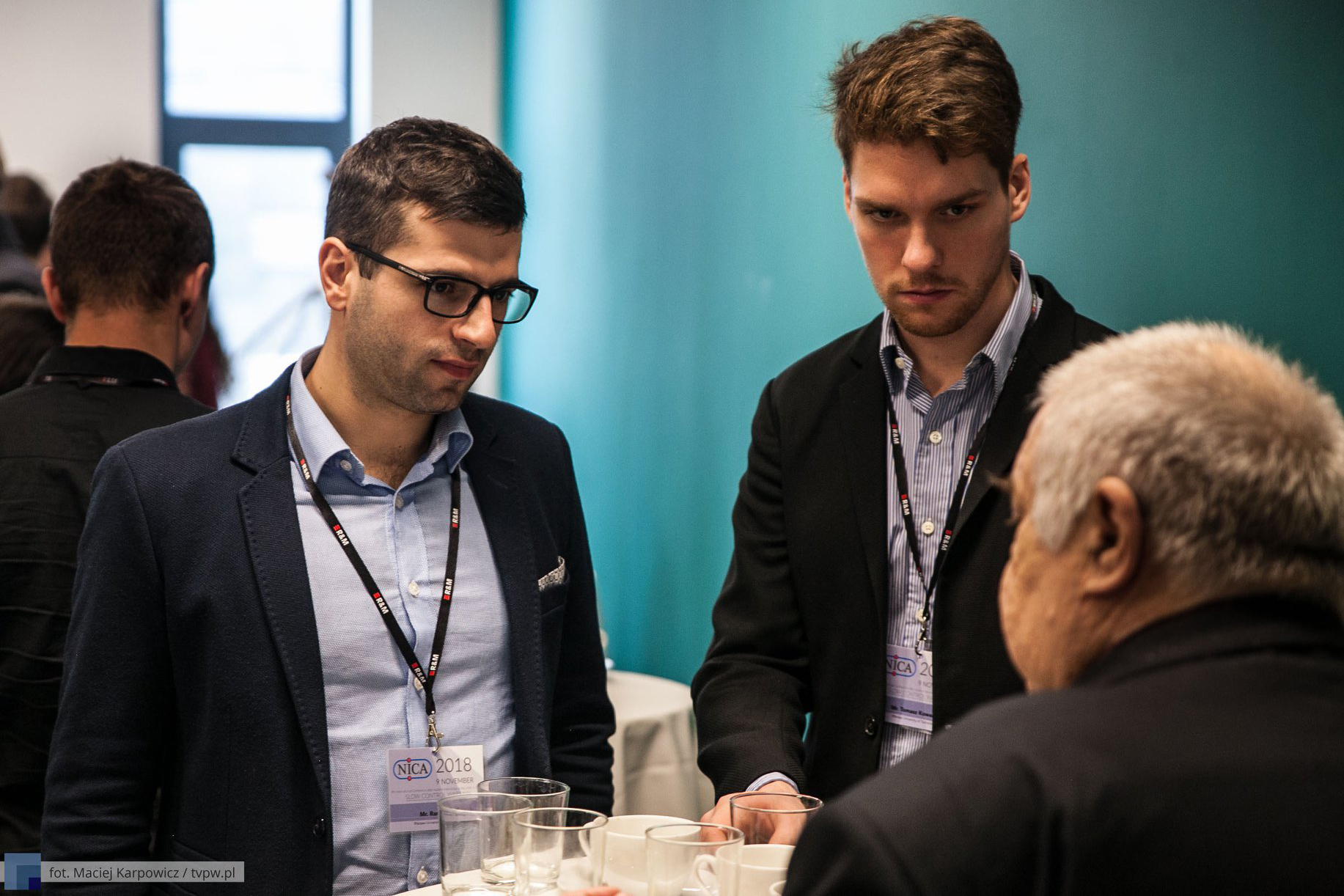“Slow Control Warsaw 2018” : young staff members for NICA
News, 16 November 2018
On 9 November 2018, the 4th International Conference “Slow Control Warsaw 2018” was held in the Innovation Management and Technology Transfer Center of the Warsaw University of Technology. At the Conference, scientific work was presented, which was carried out by students from Poland, Russia and India during summer training in VBLHEP in the framework of the 2nd stage of the International Student Practice (“Slow Control” project) of UC JINR, the Summer Student Programme of JINR as well as the TeFeNICA (Team for the Future of NICA) of VBLHEP. More than 70 people took part in the event. Bright eyes of the youth in the Conference Hall of the Centre was the most telling sign of a vivid interest shown to the mega science project – the NICA accelerating complex that is under construction now in Dubna.
Among the honored guests of the event there were Professor Jan Pluta (Physical Department of the Warsaw University of Technology, Head of the Polish Group in VBLHEP), Professor Adam Kisiel (Physical Department of the Warsaw University of Technology; recently appointed as Head of the NICA MPD collaboration), Doctor Wladislaw Chmielowski (the Science Organization and International Cooperation Office) as well as scientific leaders supervising work of students in the laboratory.
Marek Peryt (VBLHEP JINR, Warsaw University of Technology), chief organizer of the event, said about the Slow Control project:
“What we name “Slow Control System”, or SCS, is a combination of electronic circuits, software and technical documentation. It is a system aimed at managing other measuring, production or research systems. Nowadays, the SCS is used in almost all large-scale experiments carried out, for example, in CERN, DESY, JINR, etc.
«Slow Control System Dubna 2018» is the fourth summer professional programme for young developers of the modern equipment. Its aim is to demonstrate the importance of the SCS, to show how it works, how to design and programme it, and, finally, to test and to integrate it in large research experiments.
At this Conference, we first wanted to make sure that resources were used for a reason, i.e. that these young people worked hard at JINR and made their contribution to development of the NICA project. The second aim was to attract the most talented and engaged students and post-graduates to provide them an opportunity to learn more about the NICA project and then to be able to use their professional skills in Dubna.”
Professor Jan Pluta shared his memories:
“To recall how joint research started, we should look into the far past. Cooperation between JINR and the Warsaw University of Technology started more than half a century ago when we worked at study of shots made with bubble chambers irradiated by particles of high energies. In those times, it was the only way to gain new knowledge in the fields of high energy physics. Jointly with colleagues we came to work in JINR and, vice versa, our colleagues from JINR came to Warsaw at the Physical Institute of our University of Technology. It is worth mentioning that cooperation with JINR has always been very fruitful. It was seen in both publications and scientific degrees we got. We liked working with colleagues from the Institute as far as the level of scientific research conducted in LHEP was impressing. However, in times when it was not easy to support established scientific relations due to economic and political changes, we still met our friends from JINR in various collaborations all over the world: among them were the STAR (BNL) and the ALICE (CERN) experiments. So now, when the new mega science project NICA is being developed that will contribute to physics of heavy ions interactions, – and we are fondly interested in this field of research – we are very happy to revive what has existed years ago, to make our contacts direct, to intensify them. When I see interest in the eyes of my young colleagues, I am happy to realize that now we can work together again in new conditions, at new facilities, with new physics, using all experience acquired earlier. Attracting of students from Poland to the NICA project is one of the most crucial aspects of our cooperation. Our colleagues from JINR face a complicated task – to transform their enthusiasm into professional skills.”
Dr. Wladislaw Chmielowski noted a significant role of student programmes in JINR:
“We have started to bring our students from different universities of Poland to JINR in the framework of the “Bogoluibov-Infeld” Programme more than 10 years ago. In 2015, an idea to bring students from the Warsaw University of Technology was conceived in order to give them an opportunity to participate in a new project “Slow Control”. In 2018, one more student programme – Team for the Future of NICA – was launched. The fact that the number of students wishing to participate in these programmes continues to be increased means that such cooperation with JINR is mutually beneficial. Young people coming to the Institute can not only learn more about it and its large-scale research projects, prepare their qualification works, get acquainted with Russian culture and way of life. They also become potential staff members of the Institute. It is a well-prepared youth in search for work, and we would like to provide them an opportunity to make the most of their professional potential at JINR.”
Professor Adam Kisiel noted the importance of involving young people in the NICA project:
“At the moment, the NICA complex is at the stage of development; its future is estimated at not less then several decades. As a major project, it requires an influx of talented young people who would be able to make this development continuous. The Warsaw University of Technology and other universities in Poland recommend well-trained and enthusiastic students and postgraduates whom we would like to involve in the project so that they can work and build their careers while ensuring the success of the NICA scientific programme.”
The Conference was concluded with a gala concert of The Polish Royal Opera which was held in the Small hall of the Warsaw University of Technology.
“Science bringing nations together” – says the motto of JINR, and the Conference “Slow Control Warsaw 2018” is yet another confirmation of that.
Yulia Rybachuk, JINR University Centre
Photos by Wioleta Niedzwiedz, TVPW


